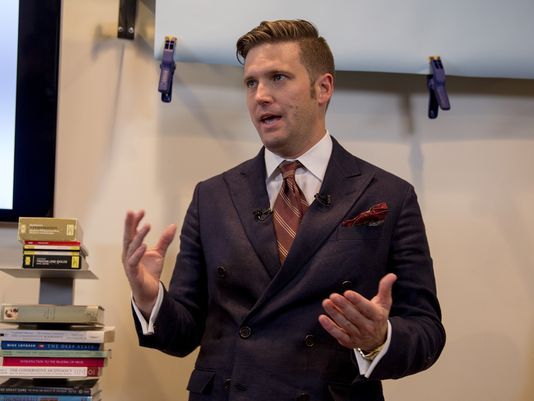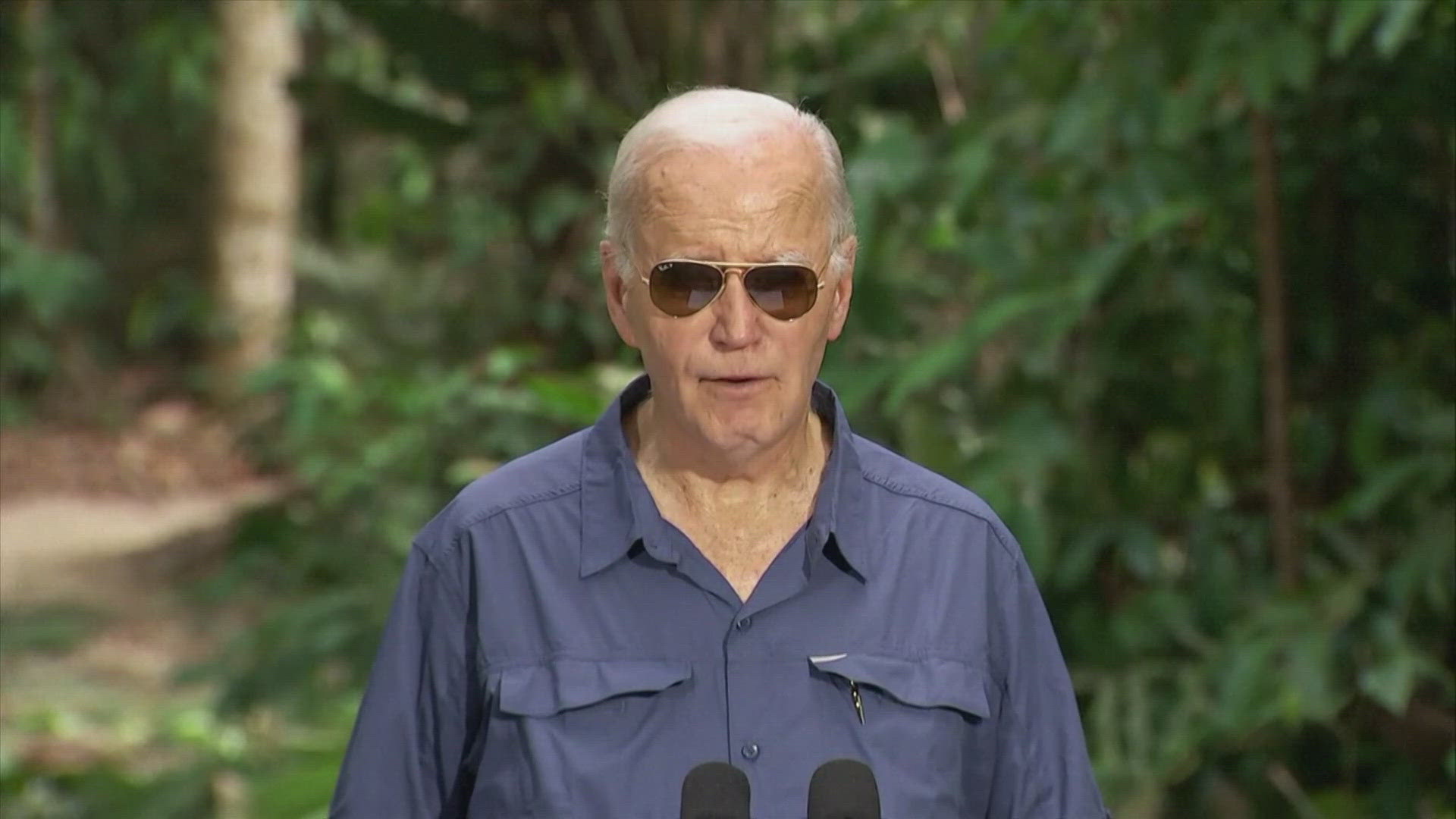GAINESVILLE, Fla. — The president of the University of Florida said white nationalist Richard B. Spencer wants the speech he will deliver Thursday to spark violence that will gain sympathy for the alternative right movement he represents.
Spencer and his supporters will thrive on any confrontation brought by anti-fascist protesters, warned university President Kent Fuchs. They hope to provoke the same violent clashes that broke out during an August rally in Charlottesville, Va., that left one woman dead.
“Now, for the first time in the history of our nation, very different racist groups are coming together under one person who speaks their language and their words and speaks their views on racism and white supremacy," Fuchs said. “They’re coming to campus with the intentions of confrontation and with the intention of having all of us repeat their view on the world."
Alt-right refers to a loosely defined group whose far-right ideology includes racism, populism and white nationalism.
Organizers for Spencer’s speech further complicated security arrangements by planning to wait until an hour and a half before the event to distribute tickets. Only people who look like alt-right supporters will be among the 700 people allowed inside the Phillips Center for the Performing Arts.
“They’re picking and choosing — it definitely isn’t us,” said Alachua County(Fla.) Sheriff's Sgt. Chris Sims. “They are the requester of the event and these tickets belong to them, but yes, it’s absolutely a safety concern."
Cameron Padgett, an organizer for Spencer’s National Policy Institute, said people who disagree with Spencer's racist rhetoric planned to receive tickets from the university and then throw them away. At least one bar also offered to trade the tickets for booze.
"There's only so many tickets we're allowed to have for the event, so it didn't make sense to let that happen," said Padgett.
Regardless of when the tickets are distributed, Padgett said security isn’t his problem. That’s on law enforcement.
"I don't say that's going to create a security issue — that's their job," said Padgett, who suggested there might be trouble from anti-fascist groups, also known as Antifa. "If Antifa wants to show up and make it a security issue then start arresting them and do your job."
The potential for violence at the event was enough for Alachua County Sheriff Sadie Darnell to ask Florida Gov. Rick Scott to declare a state of emergency. The order Scott issued Monday allows Darnell to call on specialized security teams from across the state. It also places the Florida National Guard on standby.
Fuchs said his university is the first to host one of Spencer's speeches after the deadly rally in Charlottesville. Along with the University of Florida, Padgett also applied for Spencer to speak at Ohio State University and the University of Cincinnati.
U.S. Supreme Court case law upholds his right to speak, Fuchs said.
“We’re now going to be this test point of whether, again, this is the beginning of what we’re going to see increasingly or continued so — universities being used as places where these people come with their horrific looking weapons and secondly their horrible message,” Fuchs said. “But we’re also wrestling with how we should respond.”
Fuchs first rejected Spencer's request to speak in September because of security concerns so soon after Charlottesville. But now all that remains is the potential for violence.
"If they don’t have that or evidence that something terrible will occur, I don’t see how they’ll stand a chance in federal courts in banning him forever," Fuchs said.
One advantage University of Florida has is its massive campus. The Phillips Center sits on its western edge, away from most classrooms. And unlike Charlottesville, the university has had weeks to prepare. Protesters will be separated from alt-right supporters by bulky barriers, and law enforcement officers will be patrolling on foot, Fuchs said.
Troopers from the Florida Highway Patrol spent Wednesday patrolling the Phillips Center in military formation. University crews boarded up metal parking booths and placed barriers throughout the area.
Fuchs hoped that most of the activity associated with Spencer's visit will be kept away from students still attending class. He also hoped students would skip the event.
"They want you to yell and scream, you're doing what they want you to do," Fuchs said. "My hope is that students stay away and not fall for it."


